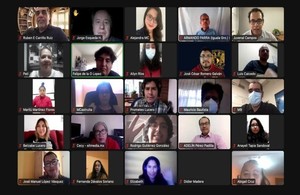World news story
Development programme in Mexico contributes to improved safety for journalists and human rights defenders.

UNESCO estimates that an average of 12 journalists have been killed each year over the past 5 years in Mexico. Reporters Without Borders and the Committee for the Protection of Journalists have classified Mexico as one of the most dangerous countries to practice investigative journalism, and according to the 2021 report from the Global Initiative Against Transnational Organised Crime, Mexico is the fourth most crime affected country in the world – the economic impact of violent crime is estimated at 24% of GDP.
To tackle this important issue, the British Embassy in Mexico, through its Open Societies and Human Rights programme, collaborated with UNESCO and Mexico’s National Institute for Public Information in the implementation of a project to develop protection plans that identify and reduce the threats received by journalists and human rights defenders by providing trainings for journalists and promoting free speech in Mexico.
The programme consisted of five virtual courses delivered by UNESCO in April 2022. These courses lasted 25 hours and were designed to strengthen the capacity of journalists in important areas such as: media and information literacy, investigative journalism, data journalism, human rights, and security and risk management.
202 journalists completed the courses successfully – including 9 journalists from countries such as Peru, Argentina, El Salvador, Ecuador and Honduras – who are now equipped with important tools to practice journalism by taking a progressive and inclusive approach, and understand how to access protection mechanisms that will allow them to exercise their profession more safely.
Published 19 August 2022
Follow this news feed: HM Government





